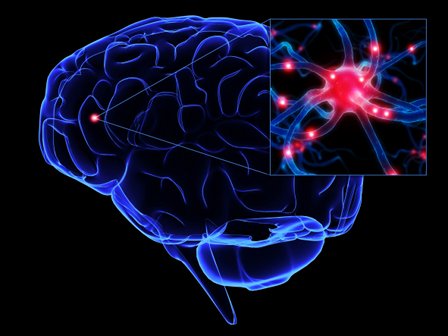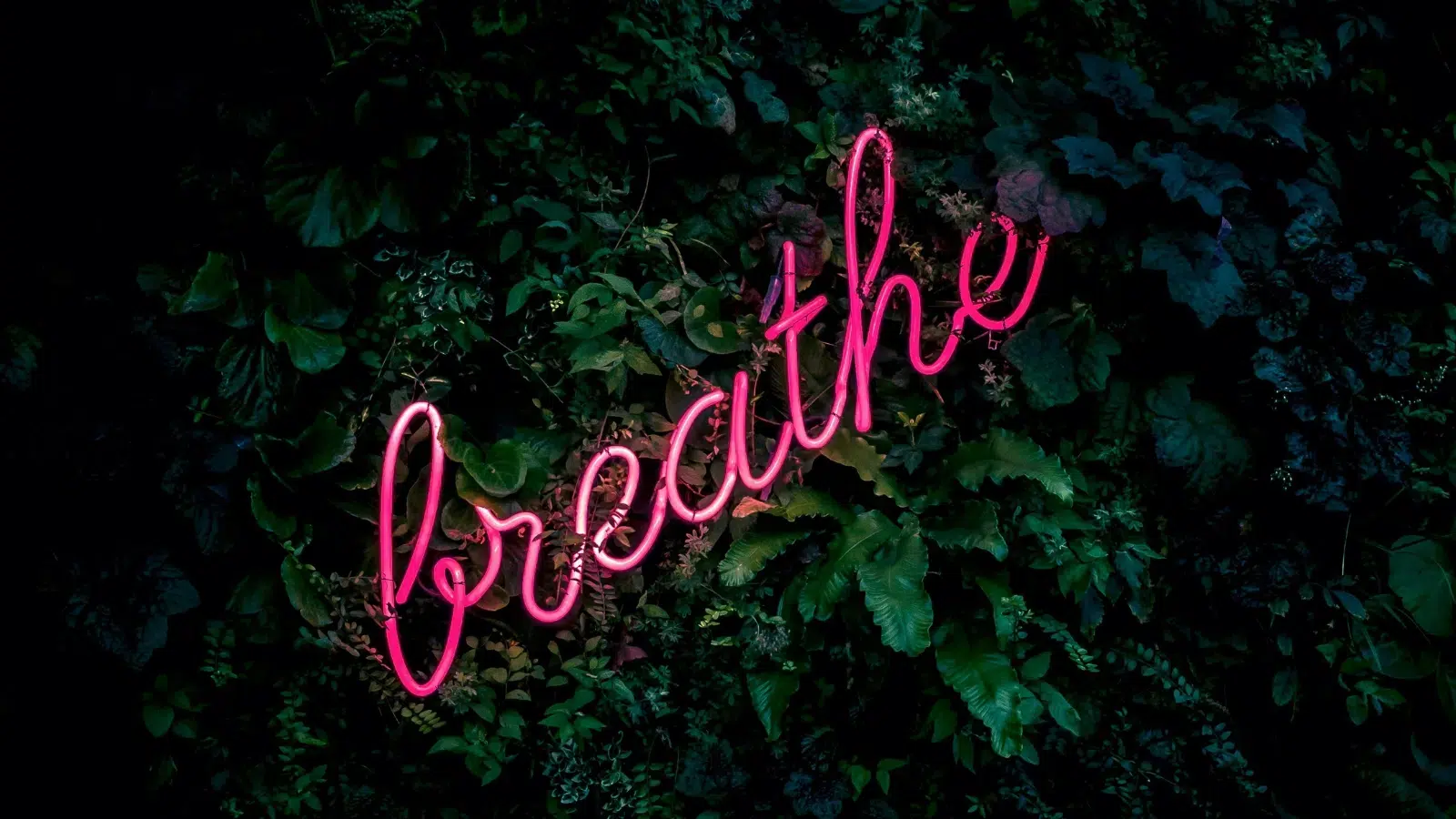Neurogenesis is the birth of new neurons from neural stem or progenitor cells in the brain. This takes place in the brain over the course of the adult lifespan, declining with age, but there are a number of behavioural, environmental, pharmacological and biochemical factors that affect this process, many of which we have considerable power to influence. Neurogenesis is also linked to changes in neuroplasticity, which is referring to changes in synapses and neural pathways in the brain, due to the effects of environment, behaviour and neural processes, although the two things can occur independently. This area is an example of an interesting and complete scientific turn around. It was long considered that the number of neurons was fixed and they did not replicate after maturity of the brain. It wasn’t until the 1990’s that neurogenesis was observed in the brains of humans, other primates and a number of other species that led to its widespread scientific acceptance.
Neurogenesis has been found to occur in two brain regions; the subventricular zone and the hippocampus. The latter part of the brain plays a key role in learning and memory, and alterations in the hippocampus have been linked to a variety of cognitive pathologies such as anxiety, depression, addiction and neurodegenerative diseases such as Parkinson’s. A reduction in hippocampus volume has been observed in patients with depression and other cognitive disorders.
Increased neurogenesis can work on a number of levels. It can act via an increase in neuron proliferation, differentiation, an increase in survival rates of new neurons, or affect the maturation and integration of new neurons. Certain growth factor proteins are implicated in playing a key role in this process. These include nerve growth factor (NGF), brain derived neurotrophic factor (BDNF) and glial cell line-derived trophic factor (GDNF).
The bulk of research on neurogenesis has been conducted using animal models, rats in particular. Experimenting on animals in this way may make some uncomfortable which is entirely understandable. However mammals such as rats make useful model animals as our primate and their rodent lineages only diverged on the tree of life around 70 million years ago, which in evolutionary time isn’t that long. On a genetic, cellular, physiological and biochemical level, their cells act in a very similar way to ours. Conducting neurogenesis research on humans is understandably more difficult.
Stress is one of the most important factors that negatively influences neurogenesis. A little stress is normal, even healthy. But excess or chronic stress is highly corrosive to the brain and to neurogenesis. Many of us experience more stress than is healthy for us, so it is important to integrate methods into our lives with which to combat this, and there are a number of things we can do. Stress can take the form of physiological stress, or anything that leads to a rise in levels of the stress hormone cortisol. Psychological stress can occur via social isolation. Human beings are a tribal species and our brains thrive with human interaction, and this applies to the loners among us too.
Cardiovascular exercise such as running is one of the single most effective ways of boosting neurogenesis; it comes with a vast array of health benefits for mind and body, and is also an important stress reliever, the endorphins produced acting as a potent antidote to cortisol. This type of exercise is simply maintaining a sustained increase in activity over an extended time, be it in the form of running, swimming or cycling. One of the benefits of exercising outside as oppose to a gym environment is exposure to a changing environment, nature and sunlight, all of which are beneficial to the brain and help relieve stress. Exercise has been found to increase levels of BDNF and GDNF, two key growth factors supporting neurogenesis. Anaerobic exercise is also beneficial, via increasing hormones such as testosterone which also seem to have a beneficial effect on neurogenesis, and act as a buffer against the effects of psychological stress. So it is important to find what exercises appeal to your particular interests, and keep active. Exercise can play a very important role in maintaining healthy brain function and neurogenesis as we age.
Diet plays an important role in brain health and neurogenesis. Excess refined sugar has a detrimental effect on the brain, and refined and processed foods should be avoided when possible; these are not the foods we evolved to thrive upon. The brain is 60% fat, and the right fats are essential to healthy brain function. These may constitute a certain proportion of plant and animal fats. Omega 3 fatty acids, in particular docosahexaenic acid (DHA) seems of particular importance with regard to neurogenesis, with rich sources including oily fish and some plant oils, hemp in particular. This fatty acid is a major structural component of the brain and many other parts of the body. Hemp seed contains all essential amino acids in a highly digestible form, and the daily requirement of all the essential fatty acids in a single tablespoon. The seed contains Omega 3 and Omega 6 oils in the same ratio as found in the human organism, making them unique among plants and superior to other seeds such as flax. So hemp seeds can be viewed as a highly nutrient dense food that may be supportive of brain health. Other things such as blueberries and green tea may also be beneficial to brain health and supportive of neurogenesis. Some foods have more direct effects on the process, such as the spice turmeric. Curcumin is the main active compound in the spice, and has been found to increase BDNF levels while acting as an antidepressant with an effectiveness equivalent to SSRI’s but without their side effects. Diet can play a highly important role in maintaining healthy brain function into old age.
There is an ever growing body of scientific evidence to support the benefits of meditation, particularly of mindfulness meditation. It has been found to lead to cause an increase in grey matter density in a number of different brain regions, including the hippocampus and is a powerful stress reliever. The method is straightforward in theory but a challenging thing to practice. It doesn’t require any belief in Buddhist or other religious or spiritual doctrine to be effective. One sits comfortably, with spine erect. Eyes are closed or half closed, and a few deep breaths taken, while feeling the various sensations of your body wherever you are sitting. Become aware of your breathing, and allow attention to rest on the sensation of breathing. If your mind wanders, bring it back to your awareness of breathing. Sensory phenomena may be experienced; one can notice these but should not engage with them. Allow them to rise and pass away and turn attention back to focus on breathing. If you find your mind has wandered, return focus to breathing. Persevere with this for ten to fifteen minutes a session when you are starting out. Done at night meditation may also increase melatonin levels, which has a number of beneficial effects, including being supportive of neurogenesis. Yoga may also benefit brain function, with increased hippocampal volume observed in elderly yoga practitioners.
A variety of other life style factors influence neurogenesis. Sleep deprivation reduces hippocampal neurogenesis, but following short term sleep deprivation the brain can recover deficits with a temporary increase in neurogenesis. Recent research suggests sleep plays a key role in brain detox, and long term sleep deprivation is highly detrimental to brain function. Exposure to sunlight is well known for its role in increasing vitamin D, but it also increases serotonin levels and GDNF expression in the brain. Exposure to sunlight is a healthy act, if exposure times are limited to times of day when it is safest to do so, when exposure to UV rays is reduced. Only a brief exposure of around ten minutes to the face can have a positive effect on the brain. Sexual experience is beneficial for brain function, elevating levels of feel good neurotransmitters, while promoting neurogenesis. Calorie restriction has been linked to increased BDNF and improved memory function with the brain responding to this stress via increasing neurogenesis. An enriched environment has also been found to have a positive effect on neurogenesis, via increasing the survival rates and assisting in the integration of new neurons into the hippocampus.
With a few interesting exceptions, the majority of psychoactive compounds tend to have a negative impact on neurogenesis. Of these chronic alcohol use is likely one of the most important and widespread causes of impaired hippocampal neurogenesis. Alcohol intake also increases cortisol levels, having a further knock on effect. Tobacco, stimulants, opiates, entactogens and some psychedelics are associated with a reduction in neurogenesis.
SSRI antidepressants have been found to increase hippocampal neurogenesis, which may play a key role in their antidepressant effect and they are effective in blocking the effects of stress. These antidepressants are only effective for a certain proportion of the population however, they come with a range of side effects and there can be unpleasant and prolonged withdrawal effects following cessation of use. If the increase in neurogenesis is part of the antidepressant effect of these antidepressants, there are certainly healthier and more natural ways of enhancing this process. In the future, new antidepressants may be screened for their neurogenic potential.
Psilocybin has recently been found to increase hippocampal neurogenesis in mice, and increased the speed of their ‘unlearning’ of negative fear behaviour responses when compared to drug free controls. This could mean psilocybin may have applications for treating PTSD in humans, a syndrome characterised by highly abnormal brain function, including impaired hippocampal function. Studies with high doses of psilocybin have found they can induce long term, positive changes in personality and feelings of life satisfaction and well being. Openness is one of the five measures of personality, and is significantly changed in the long term by psilocybin, especially if people have a mystical experience during a session. This is of great interest, as after the age of 30 personality is thought to be generally fixed in the individual, and openness is generally thought to decline with age. This change in personality remained as strong 14 months after the session, and appears to be long term. Openness covers personality traits such as an appreciation for new experiences, broadness of imagination and finding value in aesthetics, emotion and curiosity, with an increased hunger for knowledge. These changes are associated with enhanced neurogenesis and neuroplasticity. Thus psilocybin has the potential to act as a multifaceted brain tonic, and could have a number of therapeutic applications, yet remains highly illegal and is deemed to have “no medical use and a high potential for abuse” around the world.
Ibogaine is a key alkaloid responsible for the psychoactivity of the root bark of Tabernanthe iboga used for spiritual and healing purposes in central Africa. It has been found to increase levels of GDNF, and in a long term fashion via an autoregulatory, positive feedback loop. The increase in GDNF expression in turn signals neurons to increase levels of mRNA levels to support further GDNF production, and a single dose of ibogaine can increase GDNF expression for weeks, depending on dosage. Ibogaine is also highly lipophilic and remains in body tissue for months, gradually being released, further extending its influence on GDNF expression. It appears this increase in GDNF expression is responsible for part of ibogaine’s well known addiction interrupting effects. GDNF infusion has been used in the treatment of Parkinson’s disease, but is an invasive procedure. It may be possible for future compounds to act as pharmacological vectors to increase GDNF expression in the brain in the treatment of Parkinson’s disease and of cognitive pathologies such as addiction.
Ketamine treatment has been found to significantly increase expression of hippocampal BDNF in rats, and has the ability to induce growth of new synapses and reverse synaptic deficits associated with chronic stress and enhance neuroplasticity. It has been known to work as a potent and rapidly acting antidepressant in treatment resistant depression, and it is possible that part of this effect may be down to the role it plays in modulating neurogenesis. Chronic use of ketamine is associated with bladder damage and potential neurotoxicity, but it is possible it could form the basis of a new range of safer and more effective antidepressants.
Cannabis may have a positive effect on neurogenesis. Studies with a synthetic cannabinoid closely related to THC in rats found an increase in hippocampal neurogenesis, with associated anti anxiety and antidepressant behaviour. When this process was blocked via X-irradiation, neurogenesis was blocked and the anti anxiety behaviour was no longer observed, suggesting a link between the two. Much cannabis has been bred to be high THC (responsible for the psychoactive effects) and low cannabidiol (CBD), which competes for the same receptors in the brain. CBD is more common in indica strains and has been implicated with neurogenesis and as a neuroprotective agent, and research implies it may be neuroprotective against both heavy THC and alcohol exposure. It is a molecule of increasing medical interest; as well as being a powerful antioxidant; it is an anti psychotic compound that balances out the effects of THC. CBD containing strains may be preferable with regards to brain health, and to get the most out of cannabis, vaporizing and consuming it orally are the most healthy and efficient methods. CBD levels in cannabis can be increased in strains that produce it via time of harvest. CBD is one of the main metabolites of THC breakdown, so harvesting later increases the proportion of CBD to THC, and curing also increases CBD levels.
The dipeptide compound Noopept (N-phenylacetyl-L-prolylglycine ethyl ester) has been found to have nootropic and neuroprotective properties in animal studies, and chronic treatment has been found to cause an increase in BDNF expression in rat hippocampus, with an increase in expression of mRNA for BDNF and NGF following acute administration. Agents such as noopept may prove of value in the treatment of some forms of brain damage and associated learning and memory deficits. However long term treatment with noopept may lead to a downregulation of TrkB receptors, which are associated with neurotrophins and of neuronal survival and differentiation in the brain. Thus Noopept may be best used in a cyclical fashion, allowing the brain time to reach equilibrium between uses, and the compound may provide little benefit to already healthy brains.
Plants such as the ayahuasca vine (Banisteriopsis caapi) and Syrian rue (Peganum harmala), are sources of harmine and both have a long history of human use as medicines. Harmine acts as a reversible monoamine oxidase A inhibitor increasing monoamine levels and has antidepressant effects in humans. Acute administration has been found to increase BDNF levels and induce antidepressant-like effects in rat hippocampus and may suggest a novel pharmacological target for the treatment of depression. Use of ayahuasca has been found to lead to a long term increase in platelet 5-hydroxytryptamine (5-HT) transporters and recent neuroimaging research has shown changes in brain structure in long term users, with associated beneficial effects, this being indicative of changes in neuroplasticity. DMT is very closely related to psilocybin which has neurotrophic properties, and it has been hypothesised this endogenous compound may play a role in neurogenesis, neuroprotection, brain development and cellular regeneration.
Melatonin is an endogenous neurohormone produced by the pineal gland that has neuroprotective and antioxidant properties and may maintain and augment neurogenesis. It has been found to increase cell proliferation and survival in the hippocampus of aging mice and production of this hormone declines with age in both mice and humans. The hormone has also been found to enhance the survival of new neurons, and encourage growth and maturation of dendrites and lead to greater dendritic complexity and an increased volume of the granular cell layer in the hippocampus of adult mice. The modulating effect of melatonin in neurogenesis could have important implications regarding cognitive ageing and neuropsychiatric disease. Although melatonin levels decline with age, there are ways to increase production of the hormone, via life style activities such as certain types of meditation and yoga, and one can supplement their own melatonin production through diet, with certain foods such as fruits, seeds, grains and vegetables being rich sources of dietary melatonin and its precursory amino acid, 5-Hydroxytryptophan (5-HTP). Dietary melatonin appears to be far superior to taking it in the form of a synthetic supplement.
The act of learning itself is associated with neurogenesis and enhanced neuroplasticity, so a hunger for knowledge and openness to experiencing new things are themselves brain nourishing activities, so a life of learning and experiencing new things is a recipe for a healthy brain. Neurogenesis is a cutting edge frontier of research, and there is still much that remains unknown about the implications of this process and the functional role it plays. We have the power to influence this amazing process however, and it may act to keep depression, anxiety and neurodegenerative diseases at bay, while allowing us to maintain healthy brain function into old age. One thing is certain, and that is growing yourself new brain cells isn’t going to cause you any harm.









